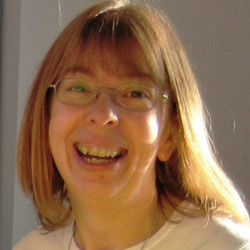Recent Stories
- Businesses urged to tap into science and technology young talent
- Digital relay baton enables remote crowd cheering of athletes
- Health Innovation Campus moves a step closer
- £7.1 million R&D boost for North West businesses
- Centre of excellence created for the next industrial revolution
- Artificial intelligence toolkit spots new child sexual abuse media online
- Strategic partnership set to help plug cyber security skills gap
- What your choice of smartphone says about you
- InfoLabTree: Discover the Story
- novi.digital Launch Event - 'An Event to Help Businesses Grow Online'
RSS Feeds
RSS feeds can deliver the latest InfoLab21 news and events direct to your browser without you having to visit the website.
In most browsers you can click on an RSS link and choose to subscribe to the feed to add it to your favourites or bookmarks.
BlogSpot: How curiosity creates success
About the author
 Mandy is the Director of Latent Promise, her own consultancy aimed at helping all types of SME organisations to improve their performance. She set it up as she saw a real gap in the market for quality support that focussed on developing the unique assets of each business, rather than applying a 'one size fits all' approach. She works across the private, public and third sector, with a particular interest in bodies that offer a social benefit, and is always keen to look at partnership working with other organisations that share her ethos.
Mandy is the Director of Latent Promise, her own consultancy aimed at helping all types of SME organisations to improve their performance. She set it up as she saw a real gap in the market for quality support that focussed on developing the unique assets of each business, rather than applying a 'one size fits all' approach. She works across the private, public and third sector, with a particular interest in bodies that offer a social benefit, and is always keen to look at partnership working with other organisations that share her ethos.
I recently finished reading a fascinating book called 'The Extra One Per Cent' by Rob Yeung. It's an analysis of what it is that distinguishes truly outstanding performance from the rest of the field.
Interestingly, it states that people who have this ability are rarely able to quantify exactly what they do to make them succeed. When questioned, they generally give exactly the same answers as people who do moderately well, citing things like 'Believe in yourself', 'stick to your goals' and so on.
This of course is the sort of stuff that attracts researchers, and so extensive case studies have been carried out across decades to map the behaviours of study groups in minute detail, look at their levels of success*, and then try to see if there are common themes to their behaviour. Rob Yeung's book identifies 8 of these themes, the first being what he terms 'awe' but which I would call curiosity.
Apparently, people who retain a sense of wonder and curiosity about the wider world are much more likely to come up with creative solutions to problems, as they're not limiting themselves to just one frame of reference. This doesn't mean that the 'jack of all trades' approach is the one to take though. Instead, Yeung talks about the 'T-shaped mind' - one that contains a lot of specialised information relating to a particular field, but which also then broadens out into knowing 'a lot about a little'. This enables you to then apply new twists to your field of expertise that others with a more delineated approach might never come across.
Within the current recession, it seems to me that the organisations and people that are coping with it best are those that embody this approach. Sales of a particular service drying up? See if there's a different market that it could appeal to. Made redundant? See what skills you have that you could sell directly in another field. It's easy to see that having a broader perspective to start with will make it easier to identify appropriate opportunities.
Yeung suggests lots of ways in which to apply this learning to yourself, but the one I particularly liked was the simple suggestion to make one small change in your schedule or routine each day. Even something as seemingly minor as parking in a different place, having a break at a different time of day or setting the table for a meal rather than eating in front of the TV can trick you out of complacency and into a new way of looking at things.
*I should stress that when Yeung talks about success, it's not necessarily monetary - he includes a whole range of things such as work-life balance, happiness with relationships and so forth. This isn't one of those soul-destroying 'you can beat the competition into submission with my secrets' book.
Lancaster University cannot be held responsible for any activity by its Association Members. We display information from InfoLab21 Associate Companies on our site and we are not responsible for the content or privacy polices of InfoLab21 Associate Companies' sites, nor for the way in which information about them is treated.
Tue 30 April 2013



